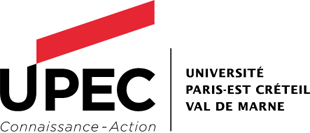- Download PDF
-
Partager cette page
- Download PDF
Graduate School
Published on December 4, 2023 – Updated on February 1, 2024
This graduate school is based on the premise that French is an international language, a shared commodity, and a cultural good, not only for France and its neighbors, but also for a large number of former colonies and outposts of French influence abroad. When compared to other multilingual countries, plural francophone societies offer a prism through which we can explore the politics of language, the geopolitics of power, and biopolitical issues crucial to Europe today, such as migration and the rise of nationalism.

The object of study is nothing less than our university's relationship with its region–a diverse melting pot on the outskirts of a world capital–and how it can participate in the local educational dynamic, while contributing to the global scientific conversation around the politics of language, north-south relations, and the inequalities inherited from France's colonial past.
Our solid foundation of decades of excellence in francophone studies have made our university the hub of a major international network of high-level research and intensive discussions at the graduate and postgraduate levels, thanks to joint degrees and PhD programs.
The FRAPP Graduate School will build on this foundation through an emerging interdisciplinary framework. Known as "Transformations, Inequalities, Resistances", the framework, which is a strategic priority for UPEC, has fostered unprecedented levels of cooperation among experts in areas such as literature, linguistics, foreign languages, geography, history, philosophy, law, economics, political science, and sociology. These experts all focus their research on power dynamics in a globalized world, and pay particular attention to the educational needs of their students on a local level. We also see tremendous value in investing our resources in the mobility of promising international students from the global south.
Our aim is to offer students unique opportunities to acquire critical, scientific skills as early as the undergraduate level, so they can develop an interest in interdisciplinary research and conduct their own projects. Individualized study programs will include internships in local laboratories or institutions abroad. We are building on existing partnerships with institutions in the Paris region, French research institutes abroad, and universities in the Americas, Africa, and Asia to establish a strong research and study network from which our students will benefit.
Our aim is not limited to the scientific impacts of these agreements, as beneficial as they may be. By training master's and PhD students to develop a keen understanding of the politics of language and geopolitical contexts, we hope to make them aware of intersectionality and the many power dynamics that they are likely to encounter in their professional experiences, whether in academia, teaching, international organizations, local authorities, NGOs, or associations.
We believe that our programs will provide the ethical and international relations skills necessary for sharing francophonie as a shared commodity that can be used to decolonize minds.
Our approach has the support of a consortium of partners in Paris, such as the Musée du Quai Branly and INALCO (Institut National des Langues et Cultures Orientales), and partners with international reach such as the AUF (Agence Universitaire de la Francophonie) and the IRD (Institut de Recherche pour le Développement). They will contribute to our programs and provide our students with internship opportunities and professional prospects.
Funding: €5.95 million
Our solid foundation of decades of excellence in francophone studies have made our university the hub of a major international network of high-level research and intensive discussions at the graduate and postgraduate levels, thanks to joint degrees and PhD programs.
The FRAPP Graduate School will build on this foundation through an emerging interdisciplinary framework. Known as "Transformations, Inequalities, Resistances", the framework, which is a strategic priority for UPEC, has fostered unprecedented levels of cooperation among experts in areas such as literature, linguistics, foreign languages, geography, history, philosophy, law, economics, political science, and sociology. These experts all focus their research on power dynamics in a globalized world, and pay particular attention to the educational needs of their students on a local level. We also see tremendous value in investing our resources in the mobility of promising international students from the global south.
Our aim is to offer students unique opportunities to acquire critical, scientific skills as early as the undergraduate level, so they can develop an interest in interdisciplinary research and conduct their own projects. Individualized study programs will include internships in local laboratories or institutions abroad. We are building on existing partnerships with institutions in the Paris region, French research institutes abroad, and universities in the Americas, Africa, and Asia to establish a strong research and study network from which our students will benefit.
Our aim is not limited to the scientific impacts of these agreements, as beneficial as they may be. By training master's and PhD students to develop a keen understanding of the politics of language and geopolitical contexts, we hope to make them aware of intersectionality and the many power dynamics that they are likely to encounter in their professional experiences, whether in academia, teaching, international organizations, local authorities, NGOs, or associations.
We believe that our programs will provide the ethical and international relations skills necessary for sharing francophonie as a shared commodity that can be used to decolonize minds.
Our approach has the support of a consortium of partners in Paris, such as the Musée du Quai Branly and INALCO (Institut National des Langues et Cultures Orientales), and partners with international reach such as the AUF (Agence Universitaire de la Francophonie) and the IRD (Institut de Recherche pour le Développement). They will contribute to our programs and provide our students with internship opportunities and professional prospects.
Funding: €5.95 million
Graduate Schools
Graduate schools are designed to enable each university campus to enhance the impact and international appeal of its programs and research in one or more scientific fields. Graduate schools work with research bodies and offer master's and PhD programs, as well as host one or more high-level research laboratories.- Download PDF
-
Partager cette page
- Download PDF
Find out more
> Grand Paris FRAPP Graduate School website (French version)

